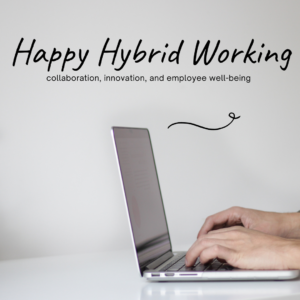 As the hybrid work environment is here to stay, leaders are cultivating a virtual environment that fosters collaboration, innovation, and employee well-being. Leaders are aiming to exceed at leveraging digital communication medium to ensure transparent and open dialogue.
As the hybrid work environment is here to stay, leaders are cultivating a virtual environment that fosters collaboration, innovation, and employee well-being. Leaders are aiming to exceed at leveraging digital communication medium to ensure transparent and open dialogue.
Furthermore, the permanence for some organizations to a hybrid work model accentuates the importance of trust. Leaders are now trusting their teams to deliver results, irrespective of their physical location. Likewise, team members are placing trust in their leaders to support and understand their unique challenges in a hybrid setting. Leadership priorities now extend beyond traditional managerial responsibilities to include creating a culture of trust, autonomy, and accountability.
Investing in Relationships: The Heart of Hybrid Work
As the workplace undergoes a metamorphosis, the essence of relationships becomes a cornerstone for success. Investing time and effort in nurturing meaningful connections among team members is vital. Social interactions, once a natural byproduct of office life, now require deliberate efforts.
Leaders play a pivotal role in fostering a sense of community. Virtual team-building activities, regular check-ins, and creating spaces for informal conversations become essential strategies. By investing in relationships, leaders not only strengthen the bonds within the team but also contribute to a positive and inclusive work culture.
Introspection Propels Growth
Navigating the complexities of hybrid work and culture demands introspection. Leaders need to reflect on their own leadership styles, recognizing strengths and areas for growth. Understanding the unique needs and preferences of each team member enables leaders to tailor their approach, ensuring that individuals feel seen, heard, and valued.
What may have worked in a traditional office setting may need adaptation in a hybrid environment. Leaders should assess whether the company’s values align with the evolving needs of a dispersed workforce, and if not, be prepared to initiate positive change.
Exploring hybrid work and culture is a balance between leadership priorities and investing in relationships. Leaders who embrace this shift with a focus on effective communication, trust, and relationship-building will not only navigate the challenges but also pave the way for a resilient and thriving workplace in the future.
Leadership Priorities: Nurturing a Culture of Adaptability
Effective leaders champion flexibility, understanding that a one-size-fits-all approach no longer suffices. Prioritizing adaptability means embracing change, encouraging experimentation, and valuing feedback to spark for continuous improvement.
The ability to bounce back from setbacks and uncertainties becomes crucial in a hybrid work environment. By modeling resilience, leaders inspire their teams to face challenges head-on, fostering a collective spirit that can persevere through difficult times.
Investing in Relationships: Beyond Professional Boundaries
Leaders are going above and beyond to get to know their team members as whole people. Recognizing and celebrating personal milestones, birthdays, or cultural festivities adds that extra touch that leaders are interested in the individual as a person.
Creating opportunities for virtual coffee chats or informal team gatherings allows for the opportunity to develop an authentic connection. Understanding the unique strengths and aspirations of team members on a personal level not only enhances collaboration but also contributes to a more harmonious and supportive work environment.
Leadership Priorities: Empowering through Empathy
Leaders who demonstrate a genuine understanding of challenges and aspirations sets the tone for a work culture that very much includes compassion. Taking the time to actively listen, acknowledge diverse perspectives, and provide support when needed builds trust and strengthens the team’s sense of belonging.
Furthermore, mental health and well-being is also a priority. Effective leaders are attuned to signs of burnout and stress. Encouraging self-care practices, promoting a healthy work-life balance, and offering resources for mental health support contribute to a resilient and thriving workforce.
Investing in Relationships: Virtual Mentorship, Team Bonding and Celebrating Diversity
Virtual mentorship programs can bridge geographical distance, providing opportunities for skill development and career growth. Leaders can also initiate cross-functional projects that encourage collaboration and create a sense of shared purpose among team members, regardless of their physical location.
Investing in relationships includes recognizing and celebrating diversity. Leaders should actively promote inclusivity, ensuring that all voices are heard and valued. Embracing a diverse workforce not only enhances creativity and innovation but also contributes to new perspectives that strengthens the overall team dynamic.
Leaders prioritizing making a real investment in relationships do shape the success of a hybrid work culture. By prioritizing adaptability, resilience, empathy, and fostering genuine connections, leaders create a foundation for a dynamic and thriving professional future.
Case Study: Salesforce
Salesforce exemplifies strong leadership priorities and a commitment to investing in relationships in the context of hybrid work.
Under the leadership of CEO Marc Benioff, Salesforce has prioritized creating a workplace culture centered around the well-being and growth of its employees. One notable aspect of Salesforce’s approach is its focus on a “1-1-1 model,” where the company donates 1% of its product, 1% of its equity, and 1% of employees’ time to philanthropic endeavors. This commitment reflects corporate responsibility and fosters a sense of purpose among employees.
Salesforce has embraced a flexible and inclusive work environment, allowing employees to choose where they work based on their preferences and needs. The company has invested significantly in technology to facilitate seamless collaboration among remote and in-office teams, recognizing the importance of effective communication in a hybrid setting.
Leaders at Salesforce actively promote a culture of trust and transparency. Regular town hall meetings and open communication channels ensure that employees feel heard and valued. Salesforce has also implemented innovative virtual team-building initiatives, acknowledging the importance of fostering relationships beyond professional tasks.
Investing in relationships is ingrained in Salesforce’s values. The company places emphasis on mentorship programs, ensuring that employees have opportunities for professional growth and development. This commitment extends to a strong focus on diversity and inclusion, fostering a workplace where everyone feels a sense of belonging.
Salesforce is a company that not only adapts to the challenges of hybrid work through strong leadership priorities but also invests in relationships to create a workplace culture that is inclusive, supportive, and resilient.
Also read: salesforce.com/news/stories/how-salesforce-builds-meaningful-employee-experiences
Katalyst Group’s Erin Jewell, Practice Lead, Executive Search, talks about how effective leaders make the extra effort to create open communication and treat their team members as whole people while inviting diverse perspectives.
Katalyst Group’s Erin Jewell, Practice Lead, Executive Search, talks about how effective leaders make the extra effort to create open communication and treat their team members as whole people while inviting diverse perspectives.

